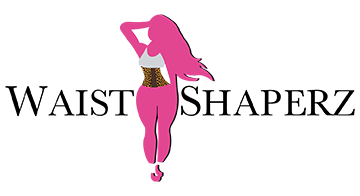Rev Up Your Engine
The key to your energy isn't just how much (or little) you sleep each night, but instead, what's on your plate. "One of the main things a healthy diet can do is give new moms energy," says Kathy McManus, RD, a FITNESS advisory board member and director of the department of nutrition at Brigham Women's Hospital in Boston. "It's important to spread food throughout the day so that you get an even amount of calories. This will give you lasting power to take care of your baby and yourself."
Need-to-Know Nutrients
When you eat foods rich with nutrients, you'll notice that your calories go a long way. You'll feel fuller longer, and will have the get-up-and-go mentality you need for those 3 a.m. feeding calls. McManus suggests the following to fuel up on:
- Fruits and vegetables
- Whole grains
- Lean protein, like fish, beef, and soy foods
- Dairy — choose skim or low-fat milk
- Leafy greens
- Iron, especially if you suffer from postpartum symptoms. You can find this in things like fortified cereals, prune juice, and lean meats.
- Vitamin C, which can help with wound healing for mothers who delivered via C-section. Find this in oranges, tomatoes, and natural fruit juices.
More superfoods to stay a supermom
If you're in the mood for a snack, McManus says to think carefully before you choose. Steer clear from snack packs since they are stocked with tons of artificial sweeteners. Instead, either have a tiny portion of what you actually want or pick from one of the following:
- Whole-grain crackers with hummus
- Nuts (stash some in your purse in case you get a craving on the go)
- A cup of whole-grain cereal with low-fat milk.
- A hardboiled egg with some carrots
- Low-fat cheese with a piece of fruit
- Peanut butter on an apple
- Plain Greek yogurt — add in a cup of berries to avoid added sugar from the flavored kind.
Eat the Pounds Off
You had the baby, and now you can go back to your old diet routine, right? Wrong. McManus says this is one of the biggest mistakes women make when trying to lose their baby weight. "Being a new mom means you're going to experience serious fatigue until you adjust to your new routine, so you need a diet that can help carry you, not one that will leave you constantly hungry and feeling deprived," she says.
To keep your spirits up, McManus suggests not wasting calories that are nutrient dense. "Treats here and there are perfectly fine, but tons of refined carbs, white breads, and sugary foods will have little gratification and will just end up spiking your blood sugar, making you more tired than you already are." In terms of weight loss, breastfeeding will support some gradual shrinkage, and by taking in adequate nutrients you need, you'll be able to start exercising again faster.
Ask the doc! An ob-gyn answers your questions about your post-pregnancy body
That's What Friends Are For
The birth of a child usually follows with a parade of homemade chocolate chip muffins, cupcakes, sugar cookies in the shape of rattles, and tons of other high-calorie, sugary goodies. Instead of the usual welcome wagon of sweets, ask your friends to pick up a few groceries instead. "People hate to come empty handed when visiting you and your baby for the first time," McManus says. So when your friends and family ask if you need anything, be honest! Ask them to pick up some yogurt they think you'll love, a can of nuts, and whatever other food you may need to keep your energy levels high.
"Your eating pattern is important not only for your energy, but also in determining how quickly you'll feel back to your old self," McManus says. "The more you stick to a healthy diet, the faster you can recover and get back to your exercise and daily routine."





Comments
0 Comments